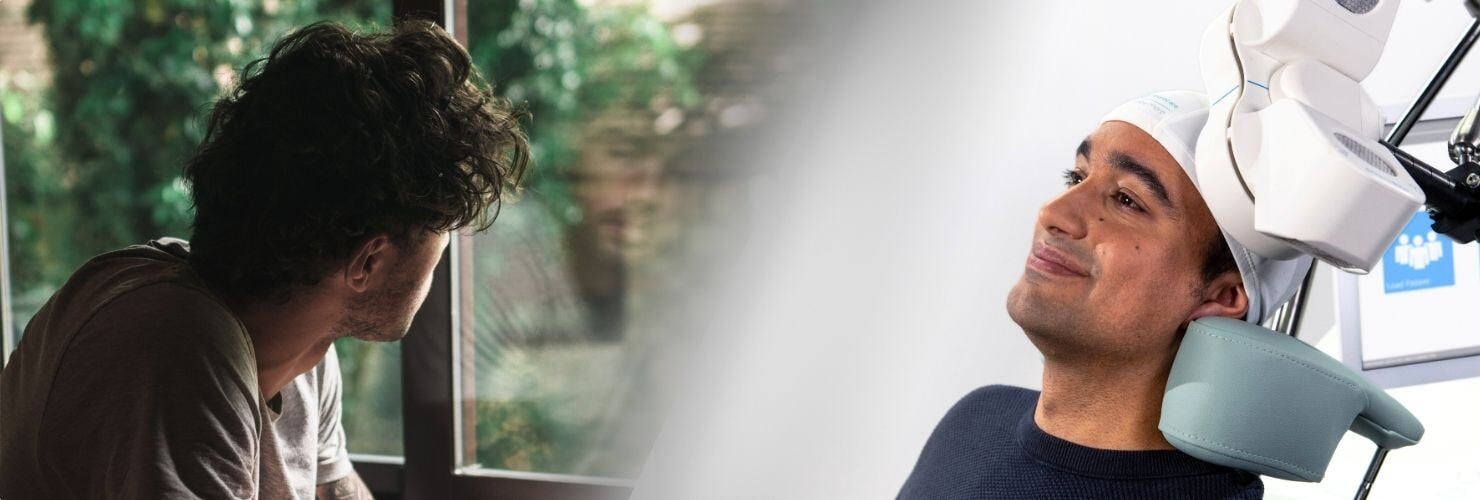TMS treatment for Borderline Personality Disorder (BPD)
Transcranial Magnetic Stimulation (TMS) is an innovative approach to treating BPD. Research shows that TMS for BPD can help improve emotional regulation and reduce impulsivity.

Transcranial Magnetic Stimulation (TMS) is an innovative approach borderline personality disorder (BPD) treatment.
It’s a non-invasive therapy for BPD that uses magnetic pulses to calm the areas of your brain that control our mood and motivation.

About Borderline Personality Disorder
Borderline personality disorder – often known as BPD – can affect your mood and you may display risky behaviours. Research suggests that around 1.7% of the UK population are diagnosed with BPD – although this doesn’t sound like a high percentage, it equates to over 1 million people!
Borderline personality disorder has many symptoms, which tend to fall into four groups. These symptoms can include:
Emotional instability
- Intense anger
- Sadness and sorrow
- Shame and humiliation
- Terror and inexplicable fear
- Emptiness and loneliness
You may have severe mood swings when suffering with BPD and unpredictable changes in mood is one of the key symptoms.
Cognitive distortion
- Feeling as though you are a terrible person
- Wondering whether you truly exist
- Briefly hearing voices or hallucinating
- Experiencing strong beliefs that no one can talk you out of
If you are suffering with severely distorted perception, this can be a sign you are becoming more unwell and it’s important you seek help.
Impulsive behaviour
- Self harm
- Reckless drinking/drug misuse
- Irresponsible spending or gambling
- Unsafe sex
Unstable relationships
- Feeling abandoned by those you love
- Feeling the opposite and as though you are being smothered with love
- Experiencing a frantic urge to stop people leaving you
- Believing relationships are black and white with no grey areas
BPD treatment options
Borderline Personality Disorder, or BPD, can be difficult for psychiatrists to diagnose because the symptoms can be so varied.
There are no drugs currently licensed by NICE (the National Institute of Health and Care Excellence in the UK) for the treatment of BPD.
The NICE guidelines recommend two types of therapy for BPD:
- Dialectical Behaviour Therapy (DBT), which works to identify negative thought patterns and introduce positive thoughts and behaviours
- Cognitive Analytical Therapy (CAT), which looks into the experiences that could have caused you to think and feel the way you do
It’s recognised that the research evidence for treatment of borderline personality is weak and DBT tends to only be effective for symptoms of deliberate self-harm.
BPD does tend to improve with age, but research also suggests that suicide rates are up to 50 times higher in BPD sufferers than in those without BPD. This highlights how vital effective treatment is while the disorder is at its worst.
How does TMS treatment work for BPD?
TMS calms the activity in the area of the brain that causes BPD to improve mood. It only treats the brain circuits involved in your condition, rather than flooding the brain with chemicals.
Treatment can help you to feel more stable and in control of your feelings.
The treatment prescribed for BPD will consist of 30 sessions, split into two courses of 15 sessions. These sessions are booked over three to six weeks, with each session lasting 30 minutes each. Some patients are able to have more than one session in a day.
TMS results for BPD
According to psychiatrists, BPD is a particularly tricky condition to assess and treat, which can leave patients without many treatment options. Research shows that TMS is effective in reducing anger and impulsive behaviour and improving unstable moods.
If you suffer from BPD, you are likely to suffer depression, too. Research into treating both conditions with TMS shows significant improvements in the symptoms of depression, allowing you to focus on accepting that your feelings are real and accepted and reducing impulsive behaviours.
TMS treatment costs
TMS for BPD
| London | Other locations | |
| Initial course (15 sessions) |
£4,500 | £4,125 |
| Second course (15 sessions) |
£4,500 | £4,125 |
"From my initial contact with Melanie and then my treatment guided by Carmen, the service was excellent. They were professional and polite, throughout. Carmen was reassuring, compassionate and extremely competent. She was able to answer all my questions. It was a positive experience all round."
"Initially I was sceptical and worried. The practitioner was excellent and put me at my ease. Significant improvement in mood fairly rapidly, and has previously been treatment resistant. Thank you so much."
"Wonderful clinic, friendly staff and it’s working!"
Continuous care

Dr Neal and his team understand the need to help out patients stay well beyond the end of their TMS treatment. Using research and our own experience, we have designed aftercare packages to provide ongoing care with a planned programme of regular top-up treatments.
Have you had TMS treatment for depression at another clinic? Smart TMS can offer you maintenance therapy, too.










